Extract from The Guardian
A thousand extra people are expected to attend the Queensland festival that will serve as family’s unofficial homecoming
Sat 4 Jun 2022 06.00 AEST
Last modified on Sat 4 Jun 2022 06.01 AESTFor many it was the sort of moment – a happy, homespun community gathering – where they most deeply felt the absence of one family. For four years, the wholesome joys of rural life have been dulled by the sense that this central Queensland town was not quite whole.
This year, organisers are trying to make last-minute arrangements to find space for international media organisations at Flourish, which will become an unofficial welcome home for Tamil asylum-seekers Priya and Nades Murugappan, and their daughters Kopika and Tharnicaa.
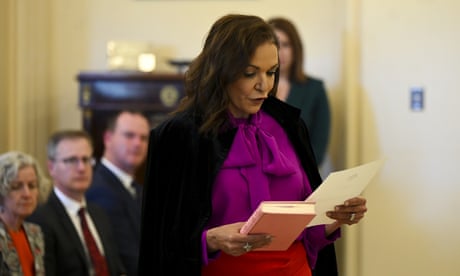
For the group of Biloela locals involved in the remarkable campaign to bring them home, the Flourish festival will provide a catharsis. A chance to finally breathe and celebrate and contemplate the scale of what has been achieved from the generous streets of this small rural town.
“I suppose it’s probably not until you look back at how everything has rolled that you can kind of see that picture,” says Bronwyn Dendle, a social worker who has been heavily involved in the campaign.
“We’ve been down in the trenches and we haven’t had that birds-eye view. But it’s not until you sit back you appreciate the wider implication of people being able to put a face to asylum seekers. We’ve rehumanised a group of people that past governments have worked so hard at dehumanising.”
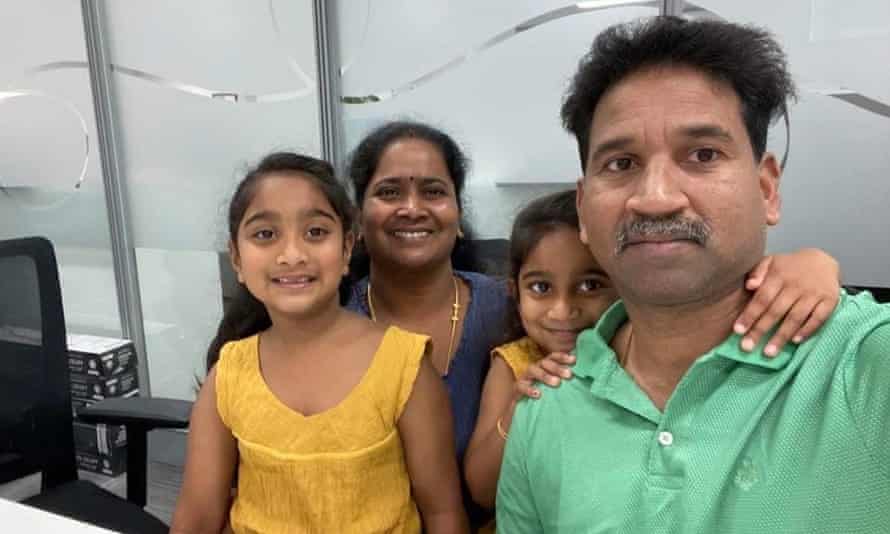
The success of the Home to Bilo campaign owes everything to the unflinching work of locals. The group were mostly women from Biloela, none with any campaigning or public relations experience, and it began alerting media outlets that the family had been taken by border force agents in a 5am raid, given 10 minutes to pack and moved to immigration detention in Melbourne. Guardian Australia ran the first story a week later.
“We’ve just been totally amazed by the overwhelming support on such a large scale,” Dendle said. “We’ve got a wonderful supporter from the US who stays in touch and sends things over for the girls. We have a supporter in Germany. It’s mind-blowing really.”
The people of Biloela never allowed themselves to stop hoping. But looking back now, there are times when a reunion in central Queensland seemed unlikely.
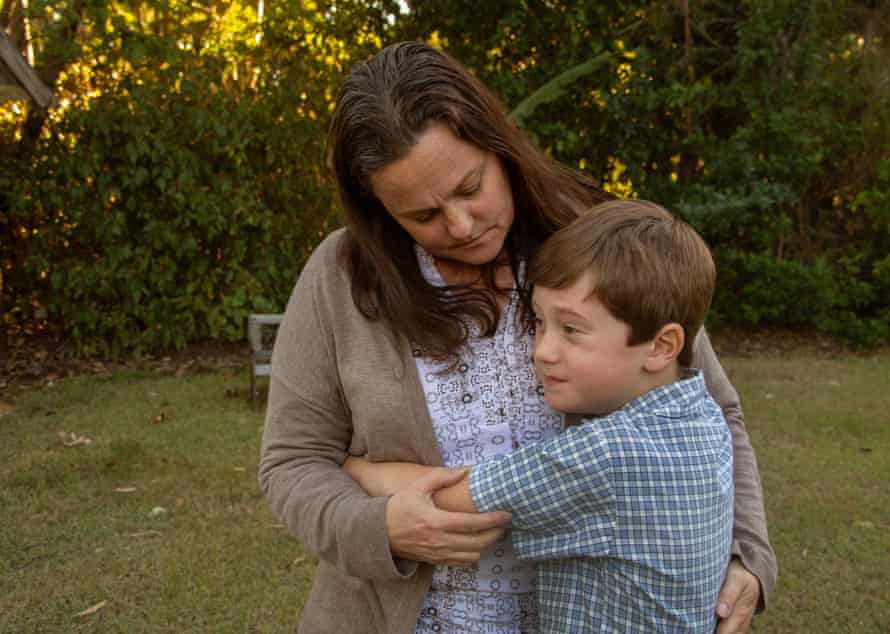
In 2019 an attempt to deport the family was halted by a last-minute court injunction – their plane was stopped in Darwin and they were moved to the detention centre on Christmas Island.
The decision to allow the family to return home to Biloela was one of the first acts of the incoming Labor government.
Dendle said she watched the election results with her family. Her son Harry, now nine, rang the prime minister’s office a few years ago asking for his friends to be allowed to return.
“It’s been interesting explaining to him that the red team is going to bring his friend Kopika home, the blue team is not,” she said. “He’s pretty excited.”
‘They didn’t want to be noticed’
The Flourish festival is, of course, more important than a welcome home party. The ordeal of the Murugappan family has affected the Biloela multicultural community, too.
Julie Pettet, the general manager at support organisation Integreat Queensland, says many of the ethnic families of central Queensland have retreated from community life in recent years.
I really believe it’s going to give people a reason to begin that process of starting to feel more confident and safer
“For a number of community members, their first instinct [after the Murugappan family was taken] was to say to multicultural people: ‘I bet you feel lucky and grateful’.
“But the reality is they were probably feeling guilty, scared, isolated.”
Integreat Queensland helps to facilitate the Flourish festival and Pettet said the organising committee of locals is now expecting about 1,000 extra people, including news media from Australia and overseas.
She said the presence of the Murugappan family next weekend would have a significant impact on others in the multicultural community.
“I really believe it’s going to give people a reason to begin that process of starting to feel more confident and safer.
“But we do not want this festival to be seen just as the party to celebrate the fact they’re home, because actually Flourish is far bigger than that. The community needs the opportunity to understand what is the benefit of having a diverse and strong and resilient migrant community.”
Unfinished business
Tharnicaa was nine months old when her family was taken from Biloela. A couple of days after the Flourish festival, she will turn five and celebrate her first birthday outside the detention system.
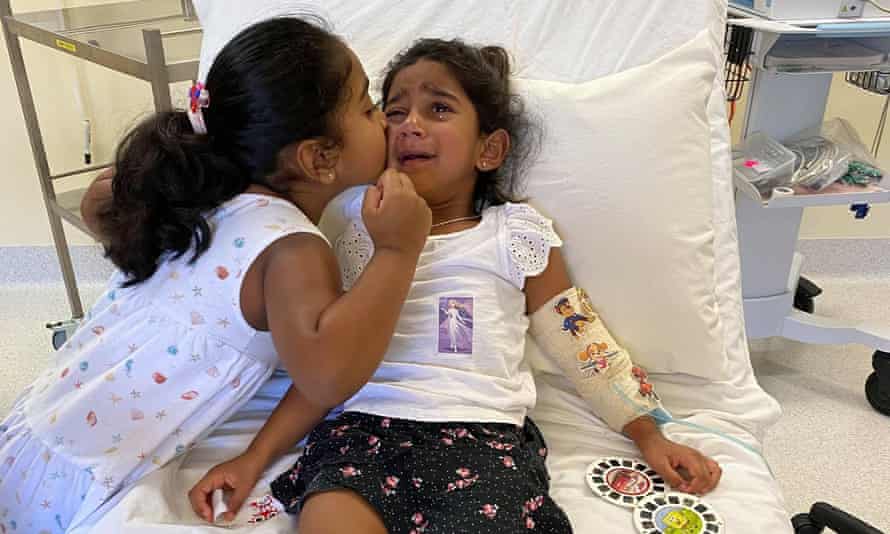
But there are still battles to be fought. One is the resolution of the family’s permanent immigration status – they have been allowed to return home, but remain on bridging visas.
“We haven’t reached the finish line on the bigger issue either,” Dendle says.
“We’ve got this little family home and are halfway there, but there are thousands of other Tamils in Australia who need permanent protection.”
Throughout the last four years, though we know their story, Australia has heard little directly from Priya and Nades. Supporters have been protective; they haven’t wanted to jeopardise their situation or antagonise government decision makers.
Dendle says Priya now wants to use the momentum of the Home to Bilo campaign to help advocate for other Tamil families who fear persecution if returned to Sri Lanka.
“Priya hasn’t really been allowed to speak up for fear of repercussions, but she has always said that what they’ve been through … is not for nothing. She wants to keep the spotlight on the issue. She wants to use this experience to be that support.
“She is the most incredible warrior woman.”
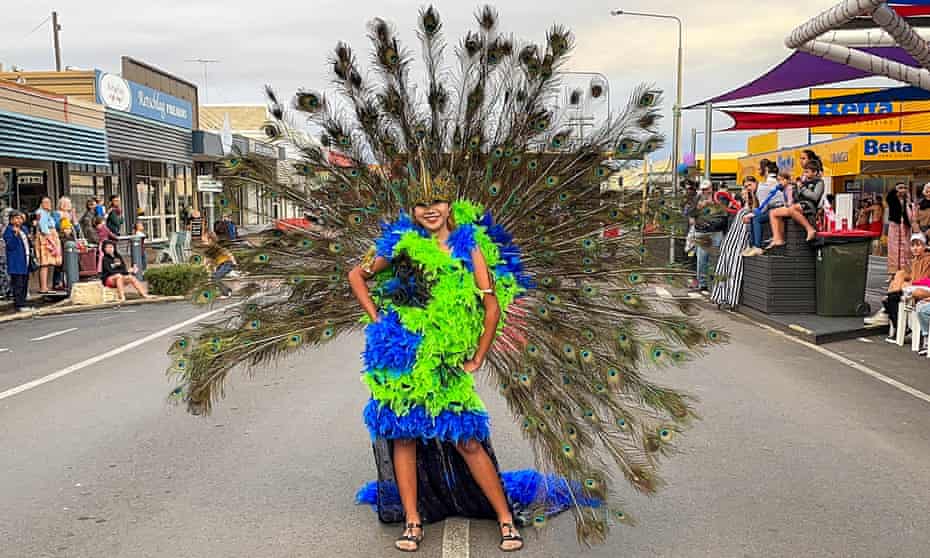
No comments:
Post a Comment